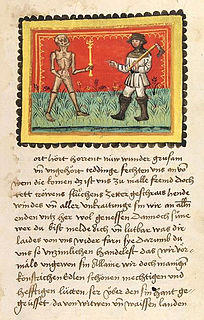A Quote by Charles Spurgeon
I would sooner be holy than happy if the two things could be divorced. Were it possible for a man always to sorrow and yet to be pure, I would choose the sorrow if I might win the purity, for to be free from the power of sin, to be made to love holiness, is true happiness.
Related Quotes
If we choose the right, we will find happiness-in time. If we choose evil, there comes sorrow and regret-in time. Those effects are sure. Yet they are often delayed for a purpose. If the blessings were immediate, choosing the right would not build faith. And since sorrow is also sometimes greatly delayed, it takes faith to feel the need to seek forgiveness for sin early rather than after we feel its sorrowful and painful effects.
Repentance out of mere fear is really sorrow for the consequences of sin, sorrow over the danger of sin — it bends the will away from sin, but the heart still clings. But repentance out of conviction over mercy is really sorrow over sin, sorrow over the grievousness of sin — it melts the heart away from sin. It makes the sin itself disgusting to us, so it loses its attractive power over us. We say, ‘this disgusting thing is an affront to the one who died for me. I’m continuing to stab him with it!’
Behind joy and laughter there may be a temperament, coarse, hard and callous. But behind sorrow there is always sorrow. Pain, unlike pleasure, wears no mask. ... For this reason there is no truth comparable to sorrow. There are times when sorrow seems to me to be the only truth. Other things may be illusions of the eye or the appetite, made to blind the one and cloy the other, but out of sorrow have the worlds been built, and at the birth of a child or a star there is pain.
It is what is left to him," said Will. "Do you not recall what he says to Lucie? 'If it had been possible... that you could have returned the love of the man you see before yourself- flung away, wasted, drunken, poor creature of misure as you know him to be- he would have been conscious this day and hour, in spite of his happiness, that he would bring you misery, bring you to sorrow and repetance, blight you, disgrace you, pull you down with him
He believed that he must, that he could and would recover the good things, the happy things, the easy tranquil things of life. He had made mistakes, but he could overlook these. He had been a fool, but that could be forgiven. The time wasted--must be relinquished. What else could one do about it? Things were too complex, but they might be reduced to simplicity again. Recovery was possible.
The difference between shallow happiness and a deep, sustaining joy is sorrow. Happiness lives where sorrow is not. When sorrow arrives, happiness dies. It can't stand pain. Joy, on the other hand, rises from sorrow and therefore can withstand all grief. Joy, by the grace of God, is the transfiguration of suffering into endurance, and of endurance into character, and of character into hope--and the hope that has become our joy does not (as happiness must for those who depend up on it) disappoint us.
Easy to see that naught save sorrow could bring a man to such a view of things. And yet a sorrow for which there can be no help is no sorrow. It is some dark sister traveling in sorrow's clothing. Men do not turn from God so easily you see. Not so easily. Deep in each man is the knowledge that something knows of his existence. Something knows, and cannot be fled nor hid from. To imagine otherwise is to imagine the unspeakable. It was never that this man ceased to believe in God. No. It was rather that he came to believe terrible things of Him.





































